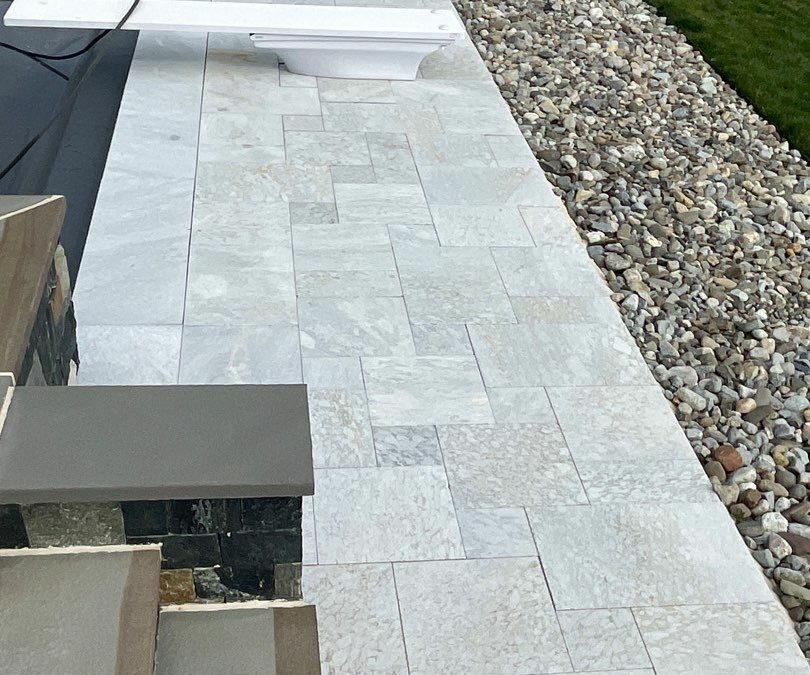If you’re a Stevensville, MD business or home owner seeking to boost the appearance and longevity of your pavers, you’ll find value within the insights offered in this post. Through this read, you will grasp a full understanding of Paver Sanding, its benefits, the importance of professional service, and even how to care for your pavers post-sanding. You can look forward to five key takeaways enhanced with five pertinent Queries and Responses. As we delve deeper into this topic, remember that All Hand’s Pressure Washing is your true partner in these endeavors.
The Intricacies of Paver Sanding
Paver Sanding involves the application of special kind of sand known as “polymeric” or “joint” sand to fill the spaces between the bricks or stones. This process assists in keeping the paving stones firmly in place, preventing weeds, and blocking pests from burrowing beneath the surface. The sand applied hardens when wet, creating a strong and tough interlock amongst the stones. The hardening doesn’t affect the flexibility, thus allowing periodic movement that prevents cracking. Paver Sanding is one of the most cost-effective and efficient ways to maintain and safeguard paved surfaces, making it a critical part of any property’s care regimen.
Benefits of Engaging Professional Services
While DIY paver sanding is an option for those with sound knowledge and necessary tools, there’s real value in teaming up with a professional service in ensuring the best possible resolution. Expertise matters. Prior to sanding, it’s of high imperative to clean the pavers clearly and certain DIY cleaning methods can leave behind residues that prevent the sand from properly adhering. Professionals from All Hand’s Pressure Washing can assure you of quality cleaning with negligible downtime. The professionals are deft in identifying the type of sand the pavers require, recognize the signs of deterioration, and are equipped to detect and mitigate any impending issues. Utilizing years of experience and specialized equipment, these professionals deliver promising results that stand through time.
Post-Sanding Care for Pavers
Caring for your pavers post-sanding isn’t necessarily labor-intensive, but involves some thought and attention. Regular sweeping helps keep debris from gathering and causing premature deterioration. Spills should be cleaned immediately to prevent staining and seepage into the sand bed. To assure longevity, periodic washing and re-sanding, which the experts recommend every 3-5 years, is a must. Professional services can also offer you guidance on the best techniques and tools for your specific paving material.
Understanding Different Sand Types
Not all sand is created equal and using the right type for your pavers is pre-requisite. Certain sands will not compact enough to create a sturdy bed, while others may wash away with rain or heavy foot traffic. Polymeric sand is a preferred option. When mixed with water, the polymers within the sand form a binding agent that locks pavers together, whilst maintaining sufficient flexibility for movement and adjustment.
Cost Vs. Value
While cost is often a consideration with any service, one must contemplate the value over initial price tags. The investment in professional paver sanding can actually save you money in the long run. Regular maintenance can prevent costly repairs or replacements, prolong the life of your pavers, and keep your property looking attractive and inviting.
Frequently Asked Questions
Q1: How often should I arrange for professional paver sanding?
Typically, a re-sanding every 3-5 years is recommended, but could be more frequently based on the specific circumstances like weather, foot traffic, etc.
Q2: Can I use any type of sand for paver sanding?
Polymeric sand is the recommended choice since it is designed to bind and harden, creating a strong, flexible bed for your pavers.
Q3: If I do it myself, will the results be similar to a professional’s?
Professional service providers have years of experience and specialized equipment which ensures high quality, long-lasting results that DIY methods may not be able to achieve.
Q4: Can I power wash my pavers after sanding?
You should avoid power washing after sanding as it could displace the imperfectly settled sand. Ideally, you should seek professional advice on cleaning methods.
Q5: Why should I use All Hand’s Pressure Washing for my paver sanding needs?
We have years of experience, specialized tools, and a commitment to ensuring high quality results. Plus, we provide instructions on the best post-sanding care techniques.
Undeniably, professional paver sanding plays a pivotal role in enhancing the aesthetics of your pavement and its durability. All Hand’s Pressure Washing in Stevensville, MD, is always ready to cater to your Paver Sanding needs with expertise and commitment. Reach us at 443-406-0351, visit our website, or check our location on Google maps.

